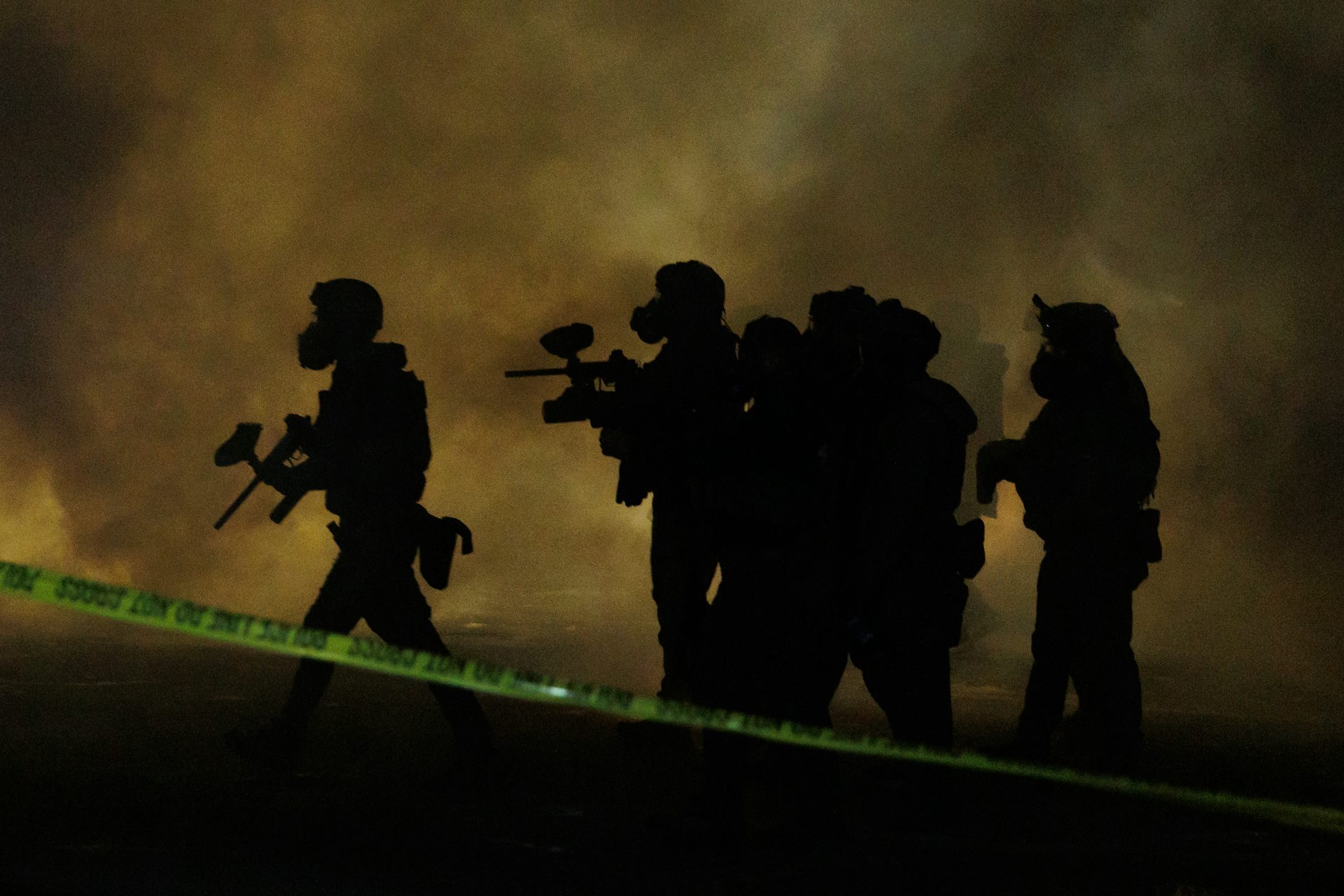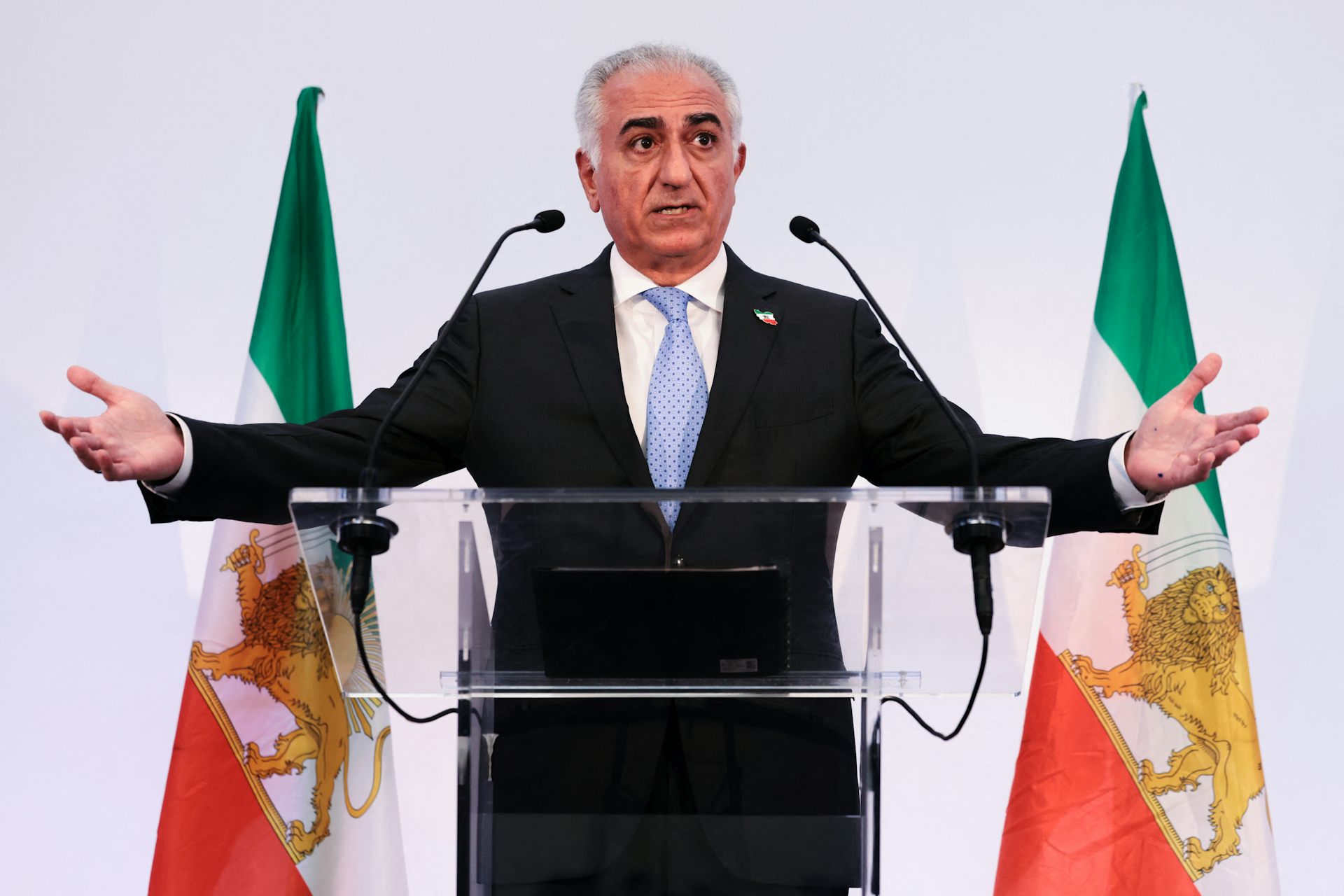For Republican presidential hopefuls, Iowa is still the first political beauty contest
Democrats may have pushed Iowa out of the early-state presidential nominating lineup, but Republicans are sticking with Iowa first.
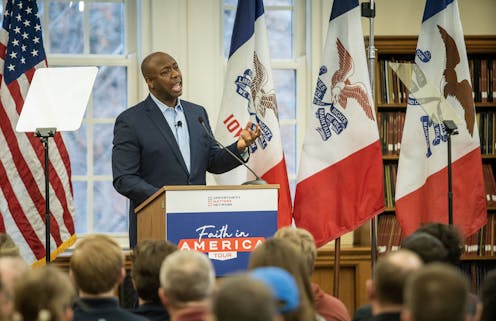
The Democratic National Committee may have dethroned the Iowa caucuses as kingmaker in its presidential nominating process, but Iowa voters still have the power to crown Republican presidential contenders or threaten their White House ambitions.
That’s the reason Tim Scott, a Republican U.S. senator from South Carolina, made a 2024 election cycle visit to the state in mid-April 2023, just hours after announcing he had launched a presidential exploratory committee. It’s also the reason former Arkansas Gov. Asa Hutchinson was in the state on April 13, two weeks after announcing his presidential bid.
Scott and Hutchinson know that for Republicans, the road to the White House begins in Iowa.
They are not alone. Announced candidates, including former President Donald Trump and former South Carolina Gov. Nikki Haley, as well as candidates who have not officially announced, such as former Vice President Mike Pence and Florida Gov. Ron DeSantis, have also made the trek to Iowa, too.
The state gives presidential hopefuls a venue to test their messages and campaign skills early in the campaign process. And candidates with limited resources can meet Iowa voters face to face and forgo expensive advertising campaigns to make their cases.
I am an emeritus professor of political science at Iowa State University, where I began working in 1970 and have watched the Iowa caucuses evolve. I have written books on the topic, including the textbook “American Government and Politics Today, which I co-authored with Barbara A. Bardes and Mack C. Shelley II. I see the caucuses this year facing a big challenge, as the Democrats in Iowa may defy the DNC and continue to hold their caucuses first.
Iowa wasn’t always first
The Iowa caucuses have been a tradition since 1846. Before 1907, both parties in the state selected all their candidates, not just president, through the caucus system. Iowa held a presidential primary in 1916, but it went back to the caucus system the following year because the primary was costly and none of the major candidates participated.
But the state’s modern nominating contest that gave it first-in-nation status was largely an outgrowth of the chaos of the 1968 Democratic National Convention in Chicago.
The convention was marred by violence over the Vietnam War, labor disputes, civil rights, racial conflict and an unfair presidential nominating process. Party leaders decided that the primaries and caucuses had to become more inclusive, fair and open, so they formed the McGovern-Fraser Commission in 1972 to examine the root problems in the party. The commission issued a report which laid out reforms that reduced the power of party bosses and mandated a process of primaries or caucuses where ordinary citizens, including women and minorities, would have a fair process of selecting delegates.
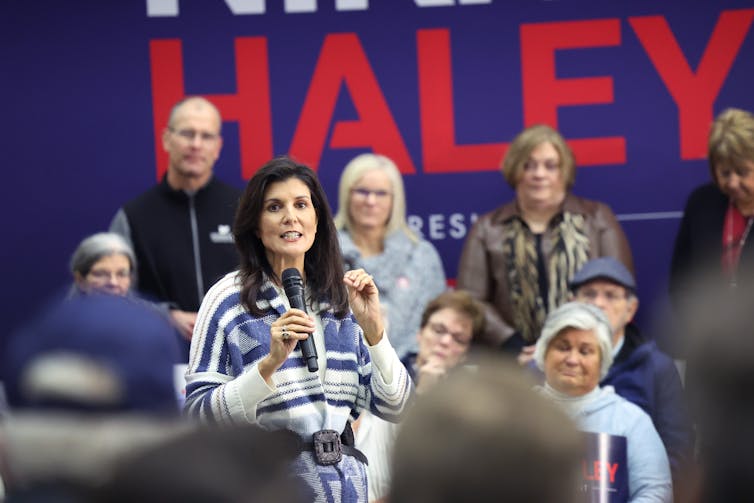
The commission report noted, "The face-to-face confrontation of Democrats of every persuasion in a periodic mass meeting is productive of healthy debate, important policy decisions, … reconciliation of differences, and realistic preparation for the fall presidential campaign.” While this was in reference to conventions, it was also exactly what caucuses have done.
At the same time, Iowa Democrats, dissatisfied with the state’s caucus system, forced state reforms that included holding district and state conventions separately. For logistical and scheduling reasons, the modern caucuses had to start in January, instead of May, when they had been held. The first time the Iowa Democrats held caucuses in January was in 1972. The Republicans did the same in 1976.
That year, a little-known candidate, Jimmy Carter, the governor of Georgia, won the Democratic Party’s Iowa caucuses and eventually the party’s presidential nomination and then the presidency. That’s when the contest took on new meaning. Candidates in both political parties saw the benefit of campaigning in the state, and the Iowa caucuses became a political must-do for anyone seeking their party’s nomination for president.
Now both a tradition and a requirement for politicians seeking exposure and name recognition, the caucuses provide candidates with lots of media exposure early in the process.
All Republican campaigns begin in Iowa
For decades, Democrats and Republicans have held their caucuses on the same night, one week before the next event in the primary season – the first-in-the-nation primary, which is held in New Hampshire. That plan allowed candidates and party leaders to maximize use of the massive media coverage that always comes with the Iowa caucuses. Republicans are sticking with that plan and will hold their opening presidential caucuses in Iowa on Feb. 5, 2024.
But in February 2023, the DNC moved Iowa out of its early voting calendar, saying it wanted early nominating states to reflect the ethnic diversity of the party. Instead of Iowa and then New Hampshire, Nevada and South Carolina, the new Democratic lineup makes South Carolina the first state. Next up are Nevada and New Hampshire, then Georgia and Michigan. Many Democrats also lost confidence in the Iowa caucuses after the 2020 presidential caucus results were significantly delayed because of reporting issues and technical problems.
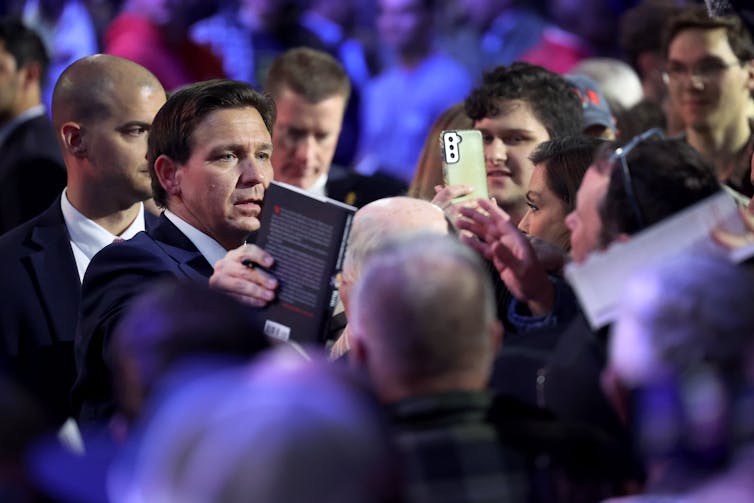
But the DNC may not get the last word on its calendar shakeup. The schedules for both the Iowa caucuses and the New Hampshire primary are mandated by their state laws, and Democratic and Republican party leaders in both states have pushed back on the DNC calendar shake-up, citing those reasons.
Iowa election codes, for example, specify that the state’s caucuses be held “not later than the fourth Monday in February of each even-numbered year” and that Iowa holds its caucuses “at least eight days earlier” than any other state’s presidential nominating contest.
Meanwhile, New Hampshire election law states that the “presidential primary election shall be held on the second Tuesday in March” or seven days before any other state presidential nominating contest. Only the Iowa caucuses are allowed before New Hampshire, according to New Hampshire law.
Iowa Democrats could ignore the DNC’s nominating calendar and hold their caucuses early. But if Iowa Democrats ignore the calendar change, the Democratic Party can issue sanctions, which may include Iowa losing half its delegates.
Now, in what appears to be a losing effort to keep the Iowa caucuses as the first presidential nominating contest, Iowa Democrats are floating a plan that would allow them to conduct caucuses mostly by mail. That would address the inclusiveness and accessibility the national Democrats want. But it seems certain the DNC would not accept that as a reason for Iowa to bypass the revised calendar which does not have Iowa first. Iowa and New Hampshire Republicans, as well as New Hampshire Democrats, say Iowa Democrats voting by mail would amount to a primary, which - according to New Hampshire’s state law - means New Hampshire would get to go first.
It’s a mess.
However the Democratic presidential nominating calendar turns out in the end, Republicans are sticking with Iowa first.
Steffen W. Schmidt does not work for, consult, own shares in or receive funding from any company or organization that would benefit from this article, and has disclosed no relevant affiliations beyond their academic appointment.
Read These Next
ICE immigration tactics are shocking more Americans as US-Mexico border operations move north
Militarized immigration enforcement used to be confined to near the US-Mexico border, far away from…
Is being virtuous good for you – or just people around you? A study suggests traits like compassion
Philosophers from Aristotle to Nietzsche have debated whether being virtuous only helps others, or if…
The rise of Reza Pahlavi: Iranian opposition leader or opportunist?
A scholar of modern Iran looks at Reza Pahlavi, son of the last shah of Iran, and examines what he believes…


